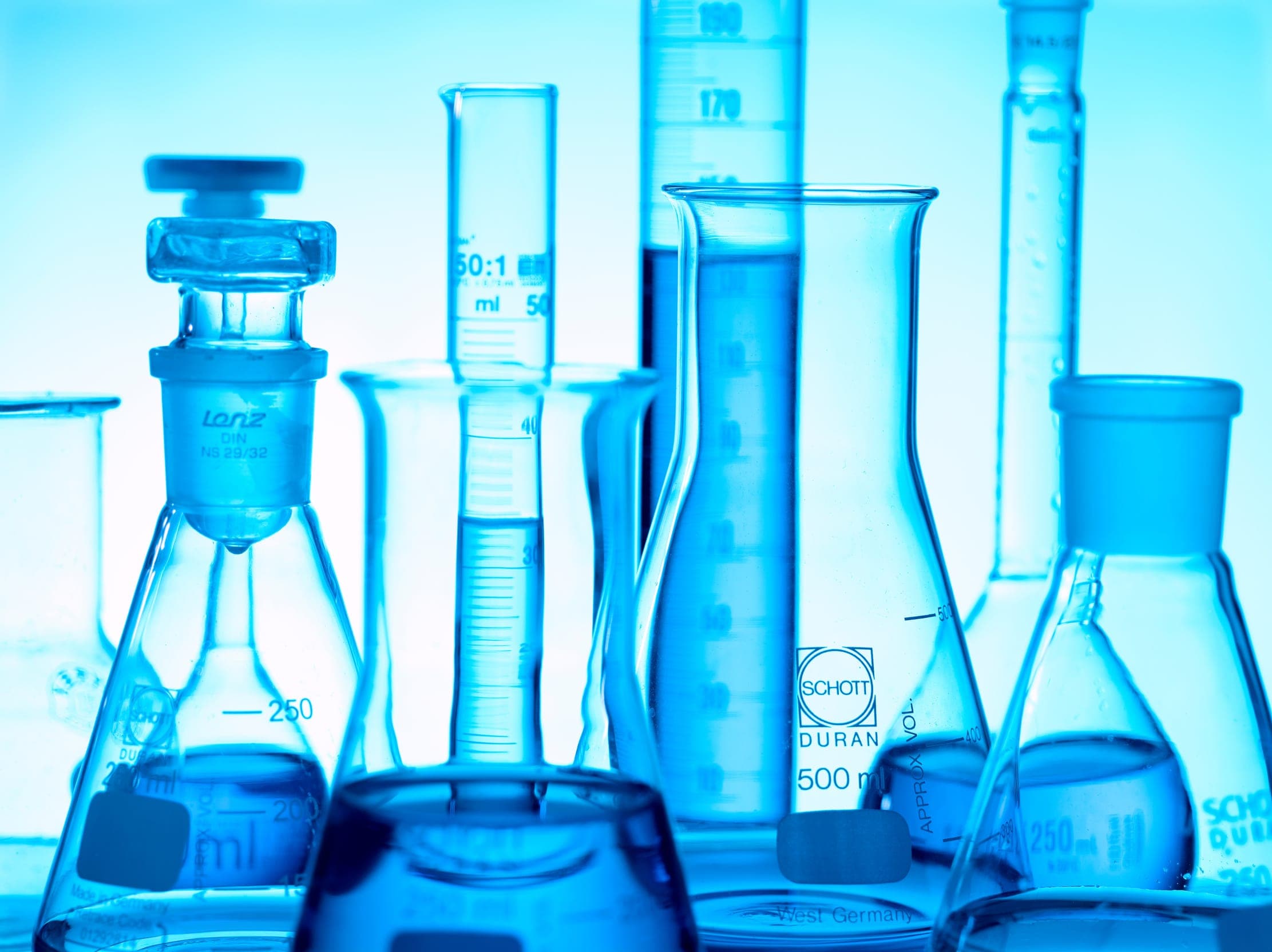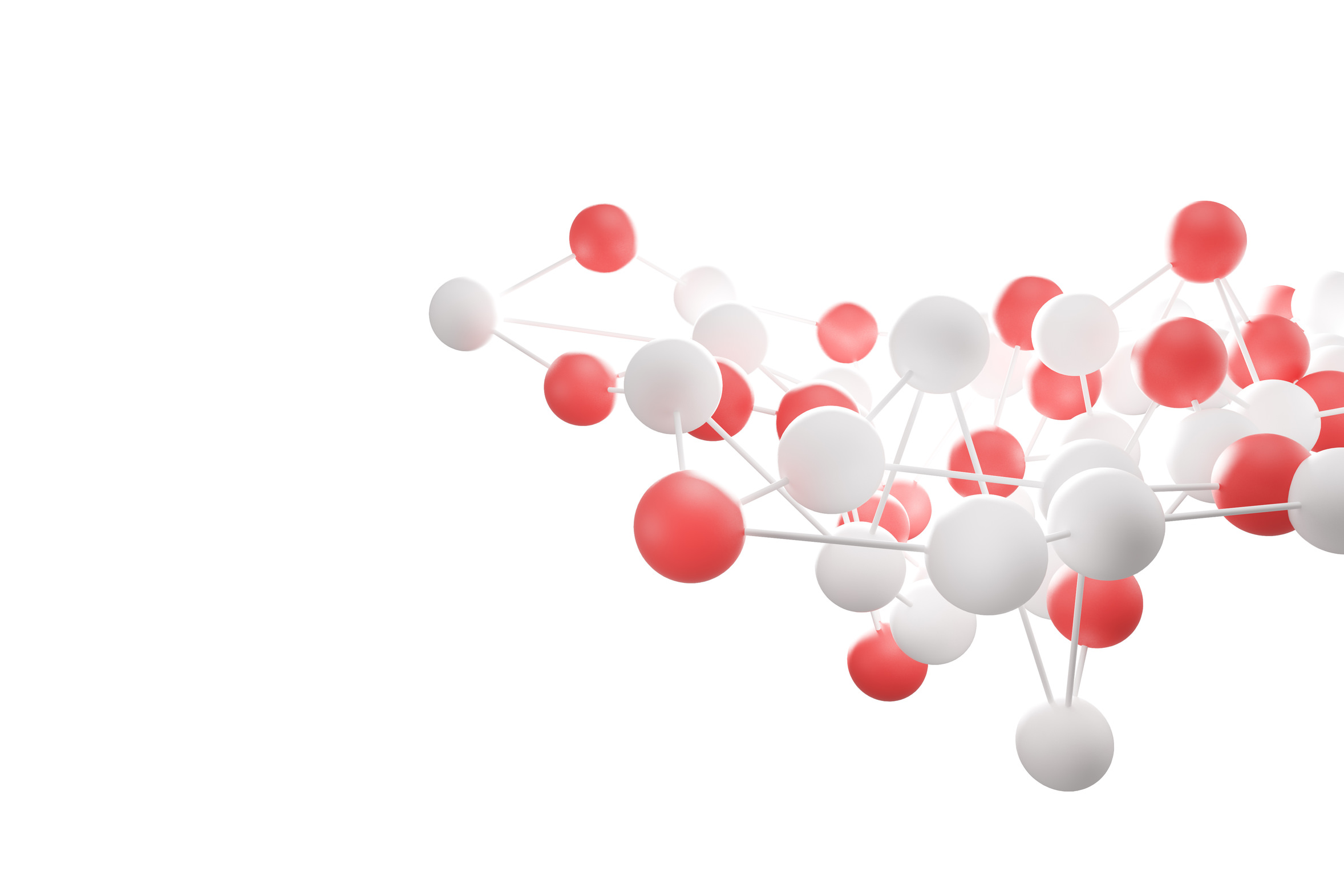
Technically usable process for the environmentally friendly solvent
Ionic Liquids
Ionic liquids as "green" solvent
In close cooperation with TULICON GmbH and Mainz University, Ruland was working on a technically feasible method for the manufacture of environmentally-friendly ionic liquids. With the development and implementation of this method, ionic liquids may be produced cost-effectively on an industrial scale.
What are ionic liquids?
Ionic liquids are molten salts with melting points under 100 °C.
They do not evaporate under their thermal decomposition and are electrically conducting and non-combustible. Even if their special environmental compatibility and the diverse areas of application were a great plus, ionic liquids are not being used in industrial processes barring a few exceptions. This is on account of the very high production costs so far. Whether they are used in the chemicals industry, paper and fibre industry, petrochemicals and electrochemical industry or photovoltaic systems: ionic liquids can substitute for environmentally hazardous chemicals in a large number of cases.
Ionic liquids
An application example of the green alternative.
Such an example, in which ionic liquids provide a “green” alternative to the chemicals used conventionally, comes from the fibre chemicals industry. Normally, large quantities of chemicals that are toxic and hazardous to the environment are used here normally for dissolving cellulose and for the manufacture of textile pulp. The complete manufacturing process may be simplified by the use of ionic liquids. They can replace the chemicals that are hazardous to health and the environment. Moreover, they can also be almost completely recycled.

Development and detail design
The process engineering plant
The difficulty with the production of ionic liquids lies in the very severe exothermic reactions; in other words, a large amount of heat is released suddenly. As a result of the development of a new process, it has been possible to regulate the energy being released with reasonable effort and cost. The process that uses the chemical basis of Prof. Dr. Löwe is based on an idea by Dr. Rainer Pommersheim and it should facilitate the continuous and industrial manufacture of the ionic liquids. The core of the process, on the one hand, is the specially developed nozzle head, which reduces the reaction time considerably while manufacturing the ionic liquids. On the other hand, two highly precise dosing pumps are used, which dose the reactants required in an accurately defined ratio.
Scale-up of the laboratory setup
A special plant for the manufacture of ionic liquids.
The excellent yield and product quality delivered by this special process has already been verified in the laboratory setup in the workgroup of Prof. Dr. Holger Löwe at the Johannes-Gutenberg University in Mainz. The technique was transferred to a process plant built by Ruland for production on a larger scale and is being further refined. The first set of trials conducted on the test system were very promising and surpassed the expectations of all those involved.
Ruland is pursuing new terrain in this field and is proving its competence in plant construction in this case. Even though the plant has been conceived and built as a special plant, several standard parts are being used, and special components are being redesigned only where they are necessary. The perfect control and process-related design with the required control and instrumentation technology is critical for the success of the project implementation.
Would you like to know more about ionic liquids?
Contact us!
